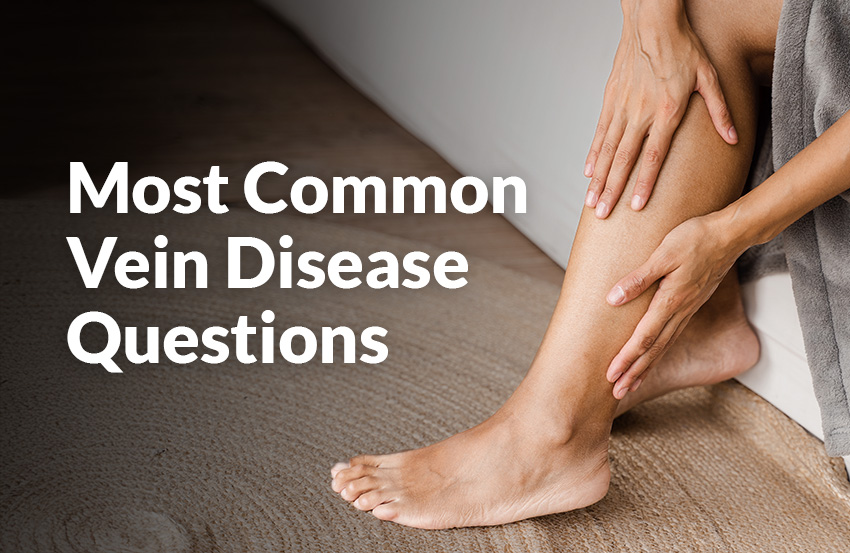Have you spotted bulging veins, tiny spider veins, or felt that heavy, achy feeling in your legs? You’re probably wondering what’s going on—and whether it’s something to worry about. We are here to let you know you’re not alone!
At Summit Skin & Vein Care, we often get these questions and want to help you learn more about vein disease and symptoms. We have put together a quick, easy-to-understand guide to our most often-asked questions to explain what vein disease is all about and how we can help you feel better.
What Is Vein Disease?
Vein disease, also called chronic venous insufficiency, happens when the veins in your legs have trouble moving blood back up to your heart. Instead, blood can pool in your legs, causing:
- Varicose veins
- Spider veins
- Swelling
- Leg pain
- Skin changes or ulcers (in advanced cases)
It’s like a traffic jam in your veins—things slow down, and you feel the effects.


Why Do I Have Vein Problems?
Several factors can contribute to vein disease, including:
- Family history
- Age
- Pregnancy
- Prolonged standing or sitting
- Obesity
- Hormonal changes
Everyone’s situation is unique, but knowing your risk factors is the first step toward healthy veins.
Are Varicose Veins Just Cosmetic?
Not necessarily! While many people dislike the appearance of varicose or spider veins, vein disease can cause real discomfort. Common symptoms include:
- Achy, heavy legs
- Swelling
- Restless legs
- Itching or skin irritation
- Leg cramps
If left untreated, vein disease can lead to more serious issues like ulcers or blood clots. Don’t wait to get it checked out.
How Is Vein Disease Diagnosed?
Good news—you don’t have to guess. We offer free vein screenings at Summit Skin & Vein Care. Using a simple, non-invasive ultrasound, we can see what’s happening beneath the surface and provide the best course of action.
What Treatments Are Available?
Today’s vein treatments are quick, comfortable, and require little to no downtime. Depending on your needs, options may include:
- Compression stockings
- Sclerotherapy
- Endovenous Laser Ablation (EVLA) Treatment
- Endovenous Chemical Ablation (EVCA) Treatment
We’ll walk you through the best option based on your specific condition and lifestyle.
Will Insurance Cover Treatment?
In many cases, yes! Insurance often covers vein treatments when they’re considered medically necessary. Our team is happy to check your coverage and handle the paperwork—so you can focus on feeling better.
Can Vein Disease Be Prevented?
While some risk factors (like genetics) are out of your control, you can still support healthy veins by:
- Staying active
- Avoiding prolonged sitting or standing
- Elevating your legs when resting
- Maintaining a healthy weight
- Wearing compression stockings when recommended
Ready to Get Answers?
If you’ve been wondering about your vein health, don’t wait. Summit Skin & Vein Care offers free vein screenings to help you understand what’s going on and explore your treatment options.
